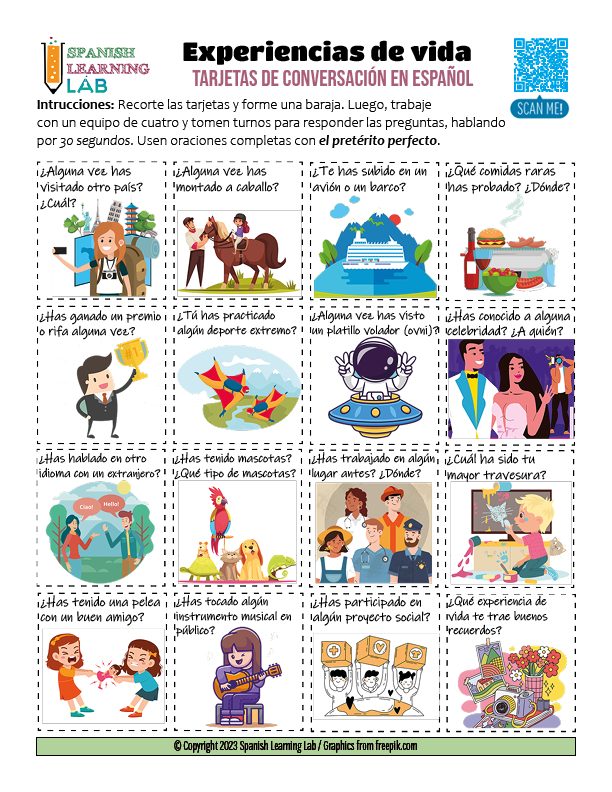¡Hola! Thanks for joining us once again. We have created this PDF worksheet to help you practice the main vocabulary and structures to talk about life experiences in Spanish by playing an interesting conversation card game with your friends or classmates. This activity was designed for group work and preferably to be executed in the classroom with your teacher’s assistance.
Directions:
Students work in pairs or in groups of four to participate in this speaking activity.
Each group of students gets a copy of the PDF worksheet. First, they must cut out the conversations cards, which include drawings and questions about people’s most common life experiences in Spanish such as traveling somewhere, eating some types of food, things they have seen in their lives, and so on. Then, they must form a deck with their classmates and take turns to draw a card, and then answer the questions on it. Each student must speak for at least 30 seconds, otherwise the card must be returned to the deck. The student who speaks for 30 seconds straight (not perfectly) using the right vocabulary and structures (present perfect in Spanish) will keep the card. The student who holds more cards by the end of the game wins.
Spanish worksheet information:
Level: Intermediate
Skill: Speaking
Related Lessons:
- Talking about Life Experiences in Spanish
- Forming the Past Participle in Spanish: examples & exercises
- Forming the Present Perfect in Spanish: Sentences + Practice

True or false: class activity
Students begin by writing down six present perfect sentences (oraciones en pretérito perfecto) about things that they have and haven’t done in their lives. They could rephrase some of the questions in the speaking worksheet above. Three of the sentences should be true and three should be false. Next, in competing teams, one student reads one of their sentences out loud to the opposing team. The opposing team’s players say whether they think the statement is true or not. The student then reveals the answer. The opposing team scores one point if they guess correctly. Only one member from the opposing team should say “verdadero” (true) or “falso” (false) when the other student shares his/her life experience. Then, one student on the other team reads one of their sentences and so on. The team with the most points at the end of the game wins.